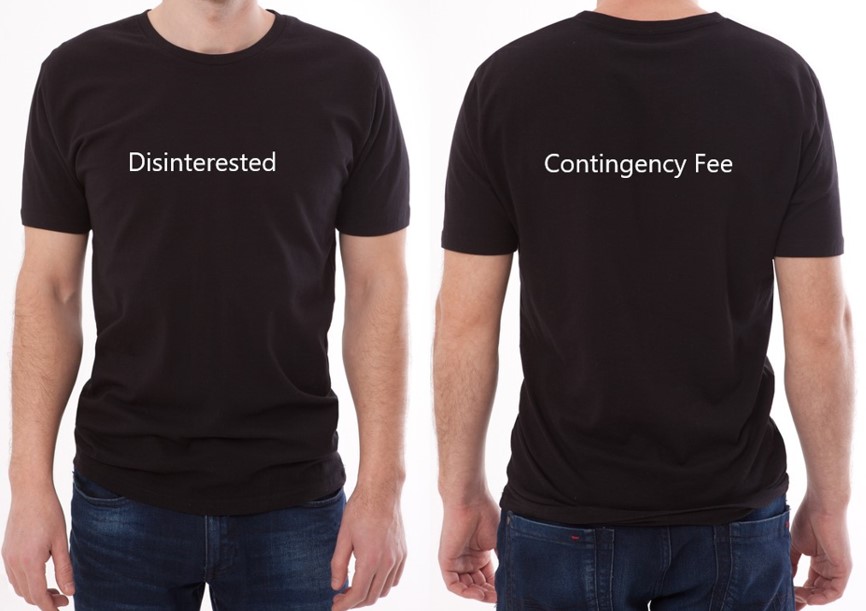Almost twelve years ago, Florida’s Third District Court of Appeal published its opinion in U.S. Fid. & Guar. Co. v. Romay, 744 So. 2d 467 (Fla. 3d DCA 1999). As of the writing of this post, Romay has been cited in no less than 44 published court opinions. Most of these cases, like the recent Citizens Prop. Ins. Corp. v. Gutierrez, 59 So. 3d 177 (Fla. 3d DCA 2011), cite the language from Romay which requires that “[t]he insured must comply with all of the policy’s post-loss obligations before the appraisal clause is triggered.” Unfortunately, this statement is only half of Romay. This is the half that focuses on the insured’s obligations. There is another side of Romay that focuses on the insurer’s obligations, and although this other side is not often discussed, it recently found its way into a published opinion from the United States District Court for the Southern District of Florida in 200 Leslie Condo. Ass’n, Inc. v. QBE Ins. Corp., No. 10-61984-CIV, 2011 WL 2470344 (S.D. Fla. June 21, 2011).
In 200 Leslie, a condominium association suffered a loss from Hurricane Wilma and filed a claim with its insurer. The insurer estimated the loss was below the policy deductible. The association relied on the insurer’s estimate until years later when it realized that the insurer’s estimate was incorrect, and sought to have the claim reopened and appraised. The insurer, QBE, allegedly ignored the demand to enter into appraisal. The association filed suit, and QBE moved to dismiss the lawsuit, citing Romay and alleging that appraisal was not proper because the insured had not complied with post-loss conditions. The Court stated:
QBE argues that the existence of a disagreement regarding the valuation of the loss is a precondition to the invocation of the appraisal provision. While this Court agrees, that argument takes QBE only so far.
As QBE acknowledges, on October 19, 2010, 200 Leslie did “write to QBE to express that ‘it disagreed with QBE’s position’ and to ‘demand[ ] that this dispute … be resolved through the appraisal process ….’ ” Although 200 Leslie sent this letter after filing suit in this case, it did so before filing the Second Amended Complaint in this matter, and to date—eight months later—QBE has not responded in any way: it has not disagreed with 200 Leslie’s contesting of QBE’s valuation; it has not requested documents from 200 Leslie; it has not sought to conduct an examination under oath; and it has not otherwise engaged in any apparent actions indicating that it is in the process of determining its position with respect to 200 Leslie’s valuation of its purported Hurricane Wilma loss. Meanwhile, 200 Leslie has indicated its willingness to comply with all of its post-loss obligations as invoked by QBE to enable QBE to determine whether it disagrees with 200 Leslie’s contestation of QBE’s valuation. QBE contends that the October 19, 2010, letter amounts irremediably to too little, too late and, thus, that Count II should be dismissed with prejudice. But other cases suggest that there may be more to consider.
The Court considered El-Ad Enclave at Miramar Condo. Ass’n, Inc. v. Mt. Hawley Ins. Co., 752 F. Supp. 2d 1282 (S.D. Fla. 2010), which I previously wrote about in Must an Insured “Sit” for an EUO Before Filing Suit if It Has Been Requested?. In El-Ad Enclave, the Court decided that dismissal was not appropriate because the insured had not demonstrated a “willful disregard” for policy conditions. The 200 Leslie Court continued its analysis in light of El-Ad Enclave by saying:
Considering the reasoning in Enclave, the Court concludes that 200 Leslie may have been able to remedy any shortcomings in meeting its pre-filing obligations under the policy even after it filed the lawsuit in this case. Thus, 200 Leslie’s October 19, 2010, letter, which predated the filing of the Second Amended Complaint and sought to determine whether a “disagreement” existed over the valuation of 200 Leslie’s alleged Hurricane Wilma loss, may have fulfilled that particular prerequisite for seeking appraisal following a sufficient period within which QBE could fairly have been expected to respond. Although QBE did not respond to the October 19, 2010, letter, QBE cannot simultaneously unilaterally preclude 200 Leslie’s satisfaction of the “disagreement” prerequisite by ignoring the demand letter and use 200 Leslie’s alleged failure to demonstrate a “disagreement” to bar suit permanently. All that is required under Romay is that QBE be given a reasonable opportunity to determine whether it disagrees with 200 Leslie’s contestation of QBE’s valuation of 200 Leslie’s loss. In order to make that decision, QBE is entitled to require 200 Leslie’s compliance with pre-appraisal obligations, should QBE wish to do so. At some point in time, however, a complete failure to respond to 200 Leslie’s contestation of QBE’s valuation and to demand compliance with pre-appraisal obligations must act as an implicit “disagreement” under the policy. Otherwise, insurers could always avoid appraisal by simply ignoring demands for appraisal. Thus, 200 Leslie’s post-initial-Complaint but pre-Second-Amended-Complaint demand letter may have set the stage for the required “disagreement” under the appraisal provision. (emphasis added).
Where most courts have looked only at the language of Romay that focuses on the insured’s obligations, the Honorable Judge Robin S. Rosenbaum saw through to the other side of Romay, which focuses on the insurer’s responsibilities. Romay holds that a “disagreement” for triggering appraisal cannot be unilateral. This requires both parties to act. Romay also requires a meaningful “exchange” of information, which requires both parties to work together. As Judge Rosenbaum appropriately stated, if the insurer fails to comply with its obligations under Romay, the correct result would be to find an implicit disagreement and permit an appraisal to go forward.
(**Note: This post was originally published on Merlin Law Group’s Condominium Insurance Law blog. You can sign up for email or RSS notifications of new posts concerning condominium insurance by clicking here).




